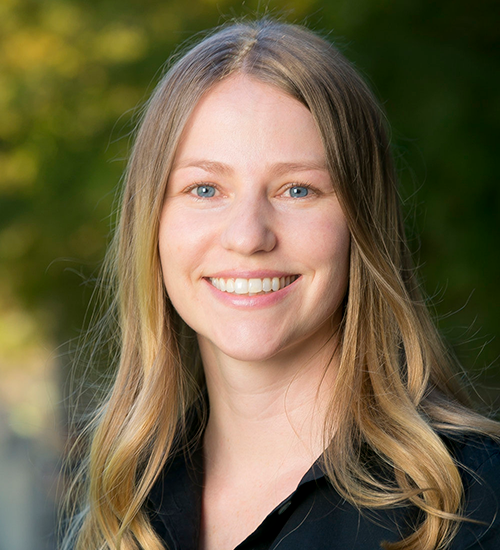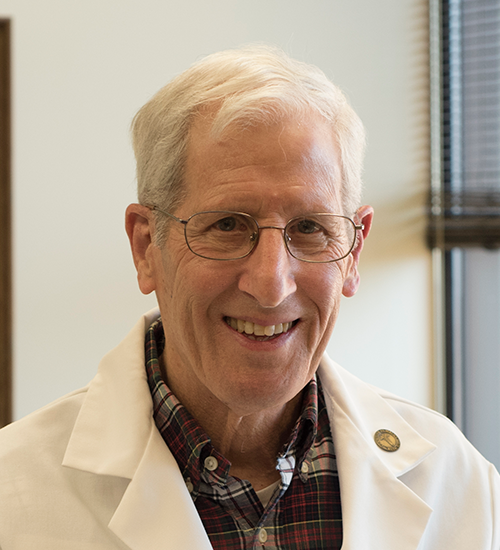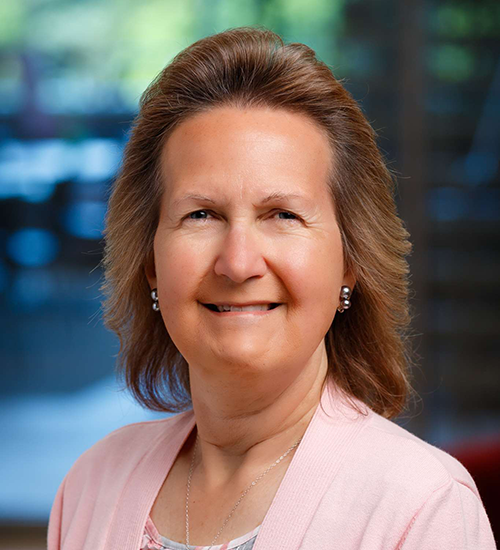Derbyshire named Sloan fellow; Dahms and Kornfeld to sit on M6P board
Derbyshire named Sloan fellow
Emily Derbyshire, an assistant professor of chemistry at Duke University, is one of 128 early-career scholars who are winners of the 2021 Sloan Research Fellowships.

Derbyshire earned her Ph.D. from the University of California, Berkeley in 2008, then held a National Institutes of Health postdoctoral fellowship in biological chemistry and molecular pharmacology at Harvard Medical School from 2009 to 2014. She was a scholar in residence in the chemistry department at Duke’s Trinity College of Arts and Sciences before joining the faculty. She is also an assistant professor in molecular genetics and microbiology and an associate of the Duke Initiative for Science and Society.
Derbyshire’s lab studies novel aspects of malaria parasite biology with the aim of identifying druggable targets. They develop phenotypic and target-based screens to discover small molecules that can be leveraged to elucidate biological pathways. Their efforts integrating biochemistry, microbiology and chemical biology have revealed parasite and human proteins that are important for pathogen infection.
Each year, the Alfred P. Sloan Foundation provides fellowships to promising scientific researchers whose achievements and potential place them among the next generation of scientific leaders in the U.S. and Canada. Winners each receive $75,000, which may be spent over a two-year term on any expense supportive of their research.
Dahms and Kornfeld named to M6P board


The Missouri-based biotechnology company M6P Therapeutics, which develops enzyme and gene therapies for lysosomal storage disorders, has appointed a scientific advisory board of geneticists and glycobiologists including two American Society for Biochemistry and Molecular Biology members, Stuart Kornfeld and Nancy Dahms.
The company is named for the sugar mannose-6-phosphate, which acts as a signal flag to promote trafficking of enzymes destined for the lysosome. Without the sugar, enzymes don't make it to the lysosome — and absence of certain enzymes can cause lysosomal buildup of their substrates. Lysosomal storage disorders are generally rare diseases but can be very serious. The company is developing a gene therapeutic approach that expresses both a missing lysosomal enzyme and a phosphotransferase that enables proper lysosomal targeting.
The scientific board’s chairman is also the company's co-founder, glycobiologist Stuart Kornfeld, a professor at Washington University Medical School in St Louis. Kornfeld, who has taught at WashU since 1967, has a long history of service to the field. He served several terms on the editorial board of the Journal of Biological Chemistry, including a term as an associate editor, and has served on numerous research review boards for awards and granting agencies. In 2012, he received the Herbert Tabor Research Award from the ASBMB.
Board member Nancy Dahms, a professor at the Medical College of Wisconsin, has studied lysosomal storage diseases since she was a postdoc in Kornfeld’s lab at WashU in the 1980s. As a postdoc, she characterized mannose-6-phosphate receptors that govern lysosomal enzyme targeting. She has studied glycoproteins and their receptors ever since, becoming a leading expert in Fabry disease, a lysosomal storage disorder caused by buildup of a glycosphingolipid when a certain lysosomal glycan-digesting enzyme is mutated or absent. She is the 2021 president of the Society for Glycobiology.
Enjoy reading ASBMB Today?
Become a member to receive the print edition four times a year and the digital edition monthly.
Learn moreGet the latest from ASBMB Today
Enter your email address, and we’ll send you a weekly email with recent articles, interviews and more.
Latest in People
People highlights or most popular articles

Building a career in nutrition across continents
Driven by past women in science, Kazi Sarjana Safain left Bangladesh and pursued a scientific career in the U.S.

Kiessling wins glycobiology award
She was honored by the Society for Glycobiology for her work on protein–glycan interactions.

2026 ASBMB election results
Meet the new Council members and Nominating Committee member.

Simcox wins SACNAS mentorship award
She was recognized for her sustained excellence in mentorship and was honored at SACNAS’ 2025 National Conference.

From humble beginnings to unlocking lysosomal secrets
Monther Abu–Remaileh will receive the ASBMB’s 2026 Walter A. Shaw Young Investigator Award in Lipid Research at the ASBMB Annual Meeting, March 7-10 in Washington, D.C.

Chemistry meets biology to thwart parasites
Margaret Phillips will receive the Alice and C. C. Wang Award in Molecular Parasitology at the ASBMB Annual Meeting, March 7-10 in Washington, D.C.
